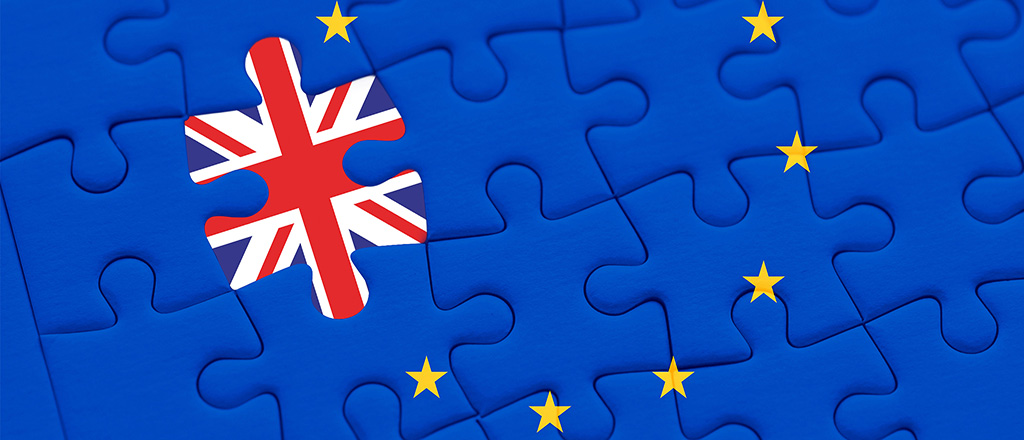The United Kingdom has a new Prime Minister, Rishi Sunak, who is the third British Prime Minister to hold office in just the last two months.[1] The UK has now had five different Prime Ministers in the six years since the Brexit referendum, which is “the fastest turnover in a century.”[2] This is not surprising, as the issues for the UK post-Brexit go far beyond the uncertainty surrounding the Prime Minister.
Since Brexit, the United Kingdom has weakened ties with its closest partners and had an unstable relationship with Europe.[3] There is also uncertainty within the union as support for independence increases in the devolved nations of Scotland and Northern Ireland, which both voted to stay in the European Union in the Brexit referendum.[4] It is not a mystery why four Prime Ministers have resigned since the Brexit vote; it is because exiting the EU has left the UK in disarray.
The UK government’s response following the referendum was an insistence that the UK withdraw from the EU’s Single Market and customs union.[5] The original framing of the Brexit campaign as a simple “in-out” question allowed Brexiters to obscure the true consequences of what they were proposing.[6] However, the reality of Brexit was the first instance of a nation leaving a deeply integrated partnership like the EU.[7] Deciding the terms of the UK’s departure from the EU’s Single Market and customs union was far more difficult in practice than in theory, demonstrated by the European Parliament expressing regret that after several rounds of negotiations “no real progress had been achieved.”[8] Much of this was due to the exceptional nature of Brexit negotiations, described as “the first negotiation in history where both parties started off with free trade and discussed what barriers to erect.”[9] The result, as of now, is the UK-EU Trade and Cooperation Agreement (TCA), which considerably reduces the UK’s integration with the European Economy and economic models suggest will cause a significant decline in UK trade overall.[10] The TCA is far from a solution as it only creates a shallow trading relationship with the EU, and the various dispute settlement procedures for specific elements will result in a constant series of negotiations and continued uncertainty about trading relations between the UK and the EU.[11]
The UK’s future policy with respect to its borders is also far from resolved as the emergence of a customs border on the Irish Sea and Northern Ireland remaining in the Single Market has led to ongoing tension and political uncertainty.[12] With this arrangement, it is not surprising that surveys show increased support for reunification in Northern Ireland, and notably there is already a provision contained in the Good Friday Agreement allowing for Northern Ireland’s exit from the UK and the reunification of Ireland.[13] Independence is plausible for Scotland as well, which recently had a referendum where over 40% of the vote was in favor of independence, and that was before Scotland was forced to leave the EU with the UK though 62% of voters in the devolved nation wanted to remain in the EU.[14] Scotland, unlike Northern Ireland, does not have an express legal route to exiting the UK, as only the British Parliament has the authority to hold a referendum in Scotland on the matter of their independence.[15] This should not be seen as a barrier to Scottish independence, however, as Scotland has a right to self-determination as a matter of international law and the UK government has acknowledged this.[16] Evidently, Brexit has resulted in significant uncertainty of the UK government’s policy domestically just as it has internationally.
The quick succession of British Prime Ministers is not an isolated issue but is a microcosm of the uncertain future of UK policy. It should be clear by now that the solution for these problems will not be found in a new Prime Minister. Perhaps the solution for the UK government, at least to start, is admitting that Brexit was a mistake and acknowledging the disarray it has caused.
[1] Willem Marx, Rishi Sunak Takes Over as U.K. PM Facing Enormous Economic and Political Challenges, NPR (Oct. 25, 2022) https://www.npr.org/2022/10/25/1131288445/rishi-sunak-uk-prime-minister-economy.
[2] Frank Langfitt, The U.K. Will Have 5 Prime Ministers in Just 6 Years. What’s Gone Wrong?, NPR (Oct. 20, 2022) https://www.npr.org/2022/10/20/1130184234/liz-truss-prime-minister-resigns-uk-turmoil.
[3] Leslie Vinjamuri, How Brexit and Boris Broke Britain: The Next Prime Minister Will Struggle to Repair the Country’s Standing, For. Affs. (Aug. 3, 2022) https://www.foreignaffairs.com/united-kingdom/how-brexit-and-boris-broke-britain.
[4] Nicola McEwen & Mary McMurphy, Brexit and the Union: Territorial Voice, Exit & Re-entry Strategies in Scotland & Northern Ireland After EU Exit, 43 Int’l Pol. Sci. Rev. 374, 376 (2022).
[5] Michael Keating, Taking Back Control? Brexit and the Territorial Constitution of the United Kingdom, 29 J. Eur. Pub. Pol’y 491, 495–96 (2021).
[6] Mel Kenny, Descending the Circles of “Brexit”: Toxicity of Future EU-UK Relations and the Road to EU Re-Accession?, 28 Colum. J. Eur. L. 36, 48 (2022).
[7] Rebecca Freeman et. al., UK Trade in the Wake of Brexit 17 (Ctr. for Econ. Rsch., Working Paper No. 1847, 2022).
[8] Christina Eckes & Päivi Leino-Sandberg, The EU-UK Trade and Cooperation Agreement: Exceptional Circumstances or a new Paradigm for EU External Relations?, 85 Modern L. Rev. 164, 169 (2022).
[9] Adam Bennett & David Vines, The EU-UK Trade and Cooperation Agreement: Lessons Learnt, 38 Oxford Rev. Econ. Pol’y 68, 69 (2022).
[10] Ilaria Fusacchia et. al., The Consequences of the Trade and Cooperation Agreement for the UK’s International Trade, 38 Oxford Rev. Econ. Pol’y 27, 48 (2022).
[11] Id. at 31.
[12] Barry Colfer & Patrick Diamond, Borders and Identities in NI After Brexit: Remaking Irish-UK Relations, 20 Compar. Eur. Pol. 544, 554 (2022).
[13] McEwen & McMurphy, supra note 4, at 380–81.
[14] Kenny, supra note 6, at 48–49.
[15] McEwen & McMurphy, supra note 4, at 380.
[16] Sionaidh Douglas-Scott, Scottish Independence and the UK Government’s Unreasonable Refusal to Negotiate, Ctr. Const. Change (Oct. 31, 2022) https://www.centreonconstitutionalchange.ac.uk/news-and-opinion/scottish-independence-and-uk-governments-unreasonable-refusal-negotiate.


